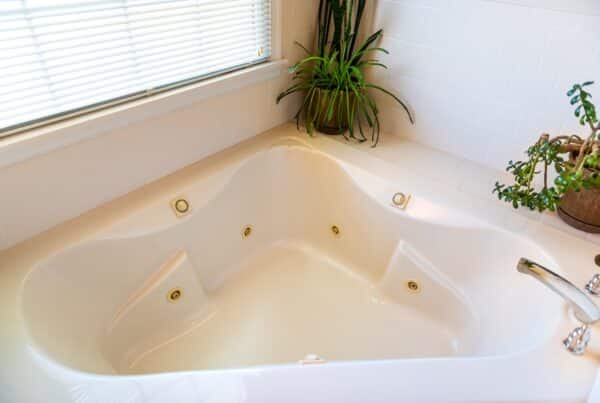
Homeownership is synonymous with ongoing maintenance and timely upgrades, which are key to ensuring your home functions seamlessly. The duration of each project can vary, and understanding these timelines is crucial in planning and executing your home maintenance successfully. Some tasks may seem daunting and time-consuming, while others are surprisingly quick and straightforward. So, just how long does it take to install a water heater?
Depending on a few factors, water heater replacement or installation can take anywhere from an hour to an afternoon. In this article, we’ll take a closer look at the essentials of water heater installation to ensure you’re prepared to plan for the task accordingly.
Understanding Your Water Heater
At its core, a water heater has a singular purpose: heating water. Whether for showers, dishwashing, laundry, or other domestic needs, heated water is a daily necessity. Traditional tank-style heaters keep a reservoir of hot water ready, while tankless models heat water on demand, offering potential energy savings.
When planning positioning to install a water heater, accessibility for maintenance and repairs is important. Tank models often occupy basements or closets, while tankless units, compact in size, may be installed closer to points of use to reduce wait times for hot water. Understanding the differences in operation, efficiency, and placement can help you make informed decisions about care and upgrades.

The Installation Timeline
Your water heater’s size and type, plus the chosen licensed master plumber, greatly impact installation time. Adherence to building codes and the specifics of water heater replacement also influence the process. Generally, the installation will be completed within a 2-3 hour window. Let’s break down what the installation process entails:
- Gathering Quotes: Before any work begins, it’s wise to seek multiple quotes from local, licensed master plumbers. Selecting the right unit for your home’s size and a contractor experienced in such installations is essential.
- Scheduling The Job: Once you’ve decided on a new water heater, promptly schedule your installation. Delaying could worsen any existing plumbing issues.
- Preparing The Area: Clear any clutter around the water heater space to give your plumber room to work.
- Out With The Old: Remove the old unit and drain it. Then, disconnect it from water and power, and remove it safely.
- In With The New: Replacing your old unit often involves upgrading to a more energy-efficient model. Gas water heaters should have special attention and typically require a professional to safely manage the gas line connections.
Bear in mind that the installation times may differ for tank versus tankless water heaters and electric models may be installed more quickly than gas ones.
Cost Considerations
While you’re planning for the installation, it’s important to factor in the cost. The price of installing a water heater can vary based on the type of heater, its capacity, energy efficiency, and the complexity of the installation job. Labor costs also play a significant role and can fluctuate depending on your location and the plumber’s expertise.
Here’s a quick breakdown of potential costs:
- Unit Price: Traditional tank water heaters may range from $300 to $1,000, while tankless options can cost from $500 to $2,000 or more.
- Installation and Labor: Depending on the job’s complexity, you might spend anywhere between $150 and $600 for the labor.
- Additional Costs: Extra work such as modifying plumbing or adding components, necessary permits, and disposal of the old unit can add to the final bill. Overall, homeowners might expect to pay a total of $800 to $3,000 for a complete water heater installation.

Person Checking and Adjusting the Pressure Relief Valve on a Water Heater
Other Recommended Maintenance
Regular maintenance is key for your water heater. Flush the tank routinely to clear sediment. Check the pressure relief valve and anode rod regularly. These actions prevent corrosion and boost efficiency. They extend your unit’s life and keep energy costs down, ensuring consistent hot water.
Seize the opportunity to conduct a comprehensive review of your home’s plumbing health. A persistent running toilet, for instance, isn’t just a nuisance—it’s a sign that your toilet’s internals might need attention. Timely repairs not only prevent water wastage but also save you from future costly water damage.
Similarly, checking for leaky faucets, inspecting pipe insulation, and ensuring your sump pump is in working order before rainy seasons are proactive practices that keep your home in top condition and provide peace of mind.
When Do I Call A Professional?
In general, it’s a wise decision to enlist a professional to install a water heater—their expertise is crucial for a seamless transition from old to new. These professionals not only bring the right tools but also the nuanced know-how to navigate complex building codes and safety standards.
Additionally, a thorough home inspection can reveal if there are other areas in your plumbing system in need of attention. A trusted inspector can also recommend top-notch plumbers, ensuring that your home’s maintenance needs are in capable hands.
Conclusion
Staying ahead of home maintenance, especially with appliances like your water heater, is smart homeownership. It’s not just about dealing with breakdowns—it’s about proactive care to prevent them. With regular inspections, your new timeline knowledge, and addressing repairs early, you’re not only protecting your home’s value but also enhancing the comfort and efficiency of your living space.
For comprehensive insights into your home’s plumbing system, consider Atkinson Inspection Services in Orlando, Clermont, and the Villages for a detailed home inspection.



